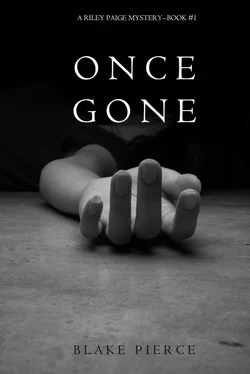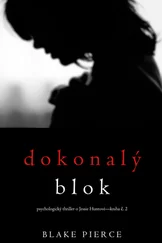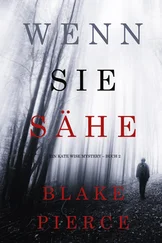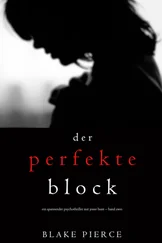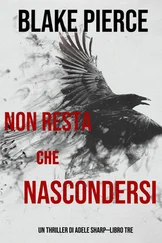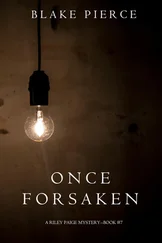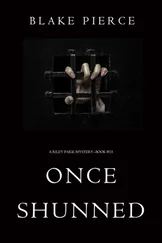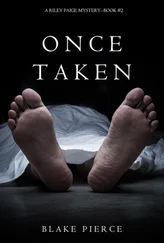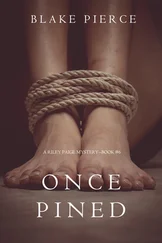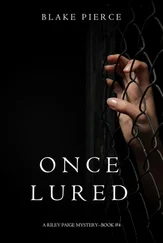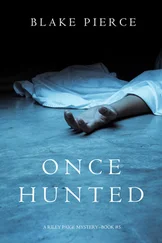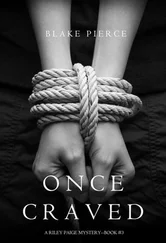The town disappeared behind her in multiple curves of the mountain roads. After a few miles, Riley turned off onto a winding dirt road.
Before too long she arrived at the cabin her father had bought after retiring from the Marines. A battered old utility vehicle was parked nearby. She hadn’t been here in more than two years, but she knew the place well.
She parked and got out of her car. As she walked toward the cabin, she breathed in the clean forest air. It was a beautiful sunny day, and at this altitude the temperature was cool and pleasant. She basked in the splendid quiet, broken by nothing more than bird songs and the rustle of leaves in the breeze. It felt good to be surrounded on all sides by deep forest.
She walked toward the door, past a tree stump where her father cut his firewood. There was a pile of wood nearby – his only source of heat in colder weather. He also lived without electricity, but spring water was piped into the cabin.
Riley knew that this simple life was a matter of choice, not poverty. With his excellent benefits, he could have retired anywhere he’d liked. He’d chosen here, and Riley couldn’t blame him. Maybe someday she’d do the same. Of course, a substantial pension looked markedly less likely, now that she’d lost her badge.
She pushed at the door and it opened freely. Out in these parts, there was little to fear from intruders. She stepped inside and looked around. The spare but comfortable single room was dim, with several unlit gas lanterns here and there. The pine paneling gave off a warm and pleasant woody smell.
Nothing had changed since the last time she’d been here. There were still no mounted deer heads or any other signs of game animals. Her father killed more than his share of animals, but solely for food and clothing.
The quiet was broken by a gunshot outside. She knew it wasn’t deer season. He was probably shooting at smaller game – squirrels, crows, or groundhogs. She left the cabin and walked uphill past the smokehouse where he stored his meat, then followed a trail into the woods.
She passed by the covered spring that his fresh water came from. She arrived at the edge of what remained of an old apple orchard. Small lumpy fruit hung from the trees.
“Daddy!” she called out.
No reply came. She pushed on into the overgrown orchard. Soon she saw her father standing nearby – a tall, gangly man wearing a hunting cap and a red vest and holding a rifle. Three dead squirrels lay at his feet.
He turned his lined, hard, weathered face toward her, looking not the least bit surprised to see her – and not the least bit pleased.
“You shouldn’t be up here without a red vest, girl,” he growled. “Lucky thing I didn’t shoot you dead.”
Riley didn’t reply.
“Well, there’s nothing out here to shoot now,” he said irritably, unloading his gun. “You’ve run them all off, with your yelling and crashing through the brush. At least I’ve got squirrels for dinner.”
He started to walk downhill toward his cabin. Riley followed after him, barely able to keep up with his long, swift strides. After years of retirement, he still walked with his old military bearing, his whole body coiled like a huge steel spring.
When they got to the cabin, he didn’t invite her in, nor did she expect him to. Instead, he tossed the squirrels into a basket by the door, then walked over to the stump near the woodpile and sat there. He took off his cap, revealing gray hair that was still cropped short, Marine-style. He didn’t look at Riley.
With no place else to sit, Riley plopped down on the front steps.
“It looks nice inside your cabin,” she said, trying to find something to talk about. “I see you’re still not mounting trophies.”
“Yeah, well,” he said with smirk, “I never took trophies when I killed in ’Nam. I’m not going to start now.”
Riley nodded. She’d heard this remark often, always delivered with his typical grim humor.
“So what are you doing here?” her father asked.
Riley started to wonder. What on earth had she expected from this hard man, so incapable of basic affection?
“I’ve got some troubles, Daddy,” she said.
“With what?”
Riley shook her head and smiled sadly. “I don’t know where to start,” she said.
He spit on the ground.
“It was a damn fool thing you did, getting caught by that psychopath,” he said.
Riley was surprised. How did he know? She’d had no communication with him for a year.
“I thought you lived completely off the grid,” she said.
“I get into town from time to time,” her father said. “I hear things.”
She almost said that her “damn fool thing” had saved a woman’s life. But she quickly remembered – that wasn’t true at all, not in the long run.
Still, Riley found it interesting that he knew about this. He’d actually gone to the trouble to find out something that had happened to her. What else might he know about her life?
Probably not much, she thought. Or at least nothing I’ve done right according to his standards.
“So did you fall to pieces after that whole thing with the killer?” he asked.
Riley bristled at this.
“If you mean did I suffer from PTSD, yes, I did.”
“PTSD,” he repeated, chuckling cynically. “I can’t even remember just what those damn letters stand for. Just a fancy way of saying you’re weak, as far as I’m concerned. I never suffered from this PTSD thing, not after I got home from the war, not after all the stuff I saw and did and got done to me. Don’t see how anybody gets away with using that as an excuse.”
He fell silent, looking off into space as if she weren’t there. Riley figured this visit wasn’t going to end well. She might as well talk a little about what was going on in her life. He wouldn’t have anything encouraging to say about it, but at least it would make conversation.
“I’m having trouble with a case, Daddy,” she said. “It’s another serial killer. He tortures women, strangles them, and poses them outdoors.”
“Yeah, I heard about that too. Poses them naked. Sick business.” He spit again. “And let me guess. You’re at odds with the Bureau about it. The powers-that-be don’t know what they’re doing. They won’t listen to you.”
Riley was startled. How did he guess?
“It was the same with me in ’Nam,” he said. “The brass didn’t seem to even get that they were fighting a damn war. Christ, if they’d left it up to the likes of me, we’d have won it. Makes me sick to think about it.”
Riley heard something in his voice that she hadn’t heard often – or at least had seldom noticed. It was regret. He actually felt regret about not winning the war. It didn’t matter that he was in no way to blame. He felt responsible.
As Riley studied his face she realized something. She looked like him, more than she’d looked like her mother. But it was more than that. She was like him – not just in her horrible way with relationships, but with her cussed determination, her overweening sense of responsibility.
And that wasn’t altogether a bad thing. In this rare moment of felt kinship, she wondered if maybe he really could tell her something she needed to know.
“Daddy, what he does – it’s so ugly, leaving bodies naked and so horribly posed, but – ”
She stopped, trying to find the right words.
“The places he leaves them are always so beautiful – forests and creeks, natural scenes like that. Why do you suppose he picks such places do something so ugly and evil?”
Her father’s eyes turned inward. He seemed to be exploring his own thoughts, his own memories, talking as much about himself as about anybody else.
Читать дальше
Конец ознакомительного отрывка
Купить книгу
